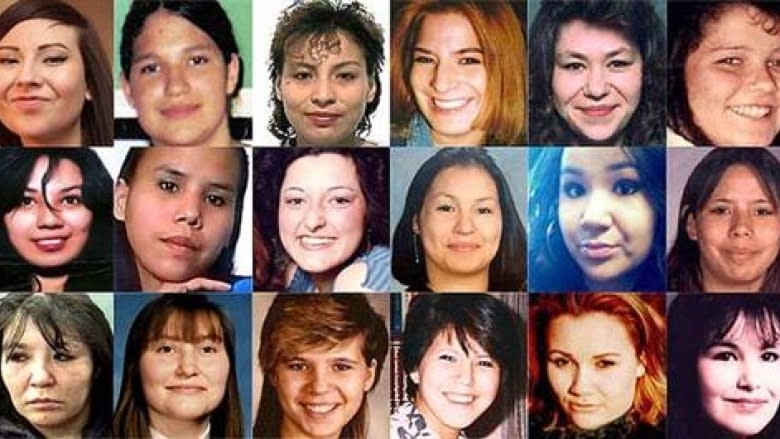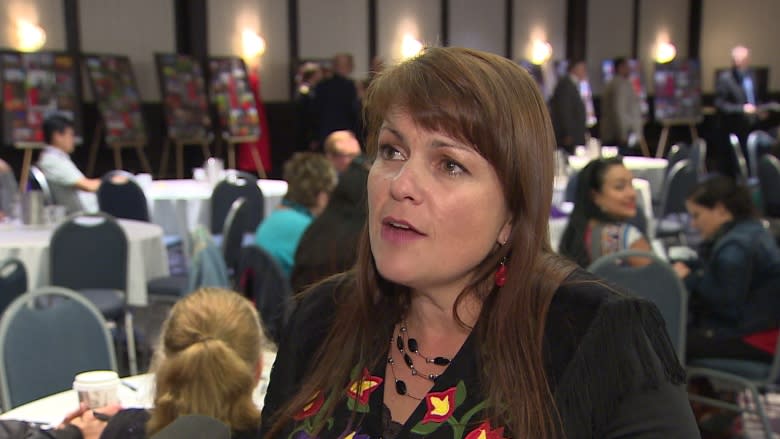New homicide statistics no surprise to indigenous women's advocate
The head of the Native Women's Association of Canada says she's not surprised new numbers show aboriginal women are still more likely to be murdered than non-aboriginal women.
"This absolutely confirms what we've been saying about the targeting of aboriginal women in Canada," said NWAC president Dawn Lavell-Harvard.
On Wednesday, Statistics Canada released homicide data from 2014 that shows while just five per cent of Canada's population is aboriginal, nearly one-quarter of homicide victims that year were aboriginal people.
The department also released more details about aboriginal women who are murdered. Between 1980 to 2014, the data shows that of 6,849 female homicides, 1,073 were aboriginal women. However, because homicide rates for non-aboriginal women have dropped since 1990, the proportion of homicides in which of aboriginal women were killed has increased to 21 per cent in 2014 from 14 per cent in 1990.
Men more likely to be killed
The new statistics also reveal something advocates have increasingly been raising alarms about: aboriginal men are three times more likely to be killed than aboriginal women. In Manitoba, aboriginal men are nine times more likely to be killed than anyone else.
"The reality is the homicide rate for aboriginal men is much higher and has always been much higher," said Neil Boyd, director of the school of criminology at Simon Fraser University.
"There's a disturbing, unfortunate legacy, and it's something that we all collectively need to put a good deal of effort into trying to resolve."
Still, Boyd doesn't think a long-expected inquiry into missing and murdered indigenous women should change its focus. Lavell-Harvard agrees.
"I think this issue does still need to be addressed in a gender-specific way," she said.
"Do they need to call a separate inquiry for aboriginal men or aboriginal people in general? Or do we somehow need to call attention to this? Absolutely."
Newly appointed Indigenous Affairs Minister Carolyn Bennett has signalled that an inquiry into missing and murdered indigenous women and girls is in the works and she's already been in touch with victims' families.
The inquiry will likely be called sometime in 2016.
First-time data
Statistics Canada drew the data from police forces across the country, including the RCMP. It's the first time the agency has released data specifically about aboriginal victims of homicide.
Today's release also included information about the relationships between aboriginal victims and their accused killers. The report says 83 per cent of solved homicides in 2014 were committed by someone known to the victim.
Lavell-Harvard said it's important to address the root causes of violence in the indigenous community — poverty, marginalization and the long-term effects of colonialism.
"There's not going to be one easy fix," she said.
"This is going to involve some significant upstream investments in a number of areas, but because this is a systemic problem involving child welfare, the police forces, corrections, all of those institutions need to be reviewed."



